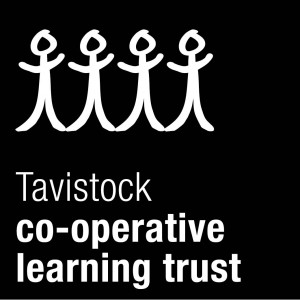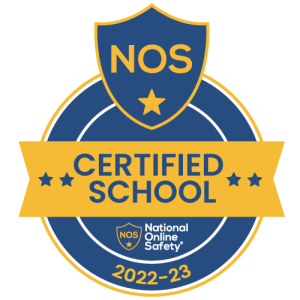Yesterday, the Government introduced new guidance on whole household isolation in response to the coronavirus (COVID-19) outbreak:
- if you live alone and you have symptoms of coronavirus (COVID-19), however mild, stay at home for 7 days from when your symptoms started
- if you live with others and you or another member of the household have symptoms of coronavirus, then all household members must stay at home and not leave the house for 14 days. The 14-day period starts from the day when the first person in the house became ill. It is likely that people living within a household will infect each other or be infected already. Staying at home for 14 days will greatly reduce the overall amount of infection the household could pass on to others in the community
- for anyone in the household who starts displaying symptoms, they need to stay at home for 7 days from when the symptoms appeared, regardless of what day they are on in the original 14-day isolation period.
The symptoms are:
- A high temperature (37.8 degrees and above)
- A new, continuous cough
The full stay at home guidance for households with these symptoms can be found here:
The Prime Minister’s statement from Monday 16 March can be found here:
Today, the Department for Education and Public Health England have issued updated guidance for education settings on COVID-19. This guidance will assist staff in addressing COVID-19 in educational settings. This includes childcare, schools, further and higher educational institutions.
What you need to know:
|
The updated guidance can be found here:
Current advice remains in place: no education or children’s social care setting should close in response to a suspected or confirmed COVID-19 case unless advised to do so by Public Health England.
The Chief Medical Officer has advised that the impact of closing schools on both children’s education and on the workforce would be substantial, but the benefit to public health may not be. Decisions on future advice to education or children’s social care settings will be taken based on the latest and best scientific evidence, which at this stage suggests children are a lower risk group.
Department for Education coronavirus helpline
The Department for Education coronavirus helpline is available to answer questions about COVID-19 relating to education and children’s social care. Staff, parents and young people can contact this helpline as follows:
Phone: 0800 046 8687
Opening hours: 8am to 6pm (Monday to Friday), 10am to 4pm (Saturday to Sunday)Please note, we are currently experiencing high volumes of calls. We appreciate your patience at this time and apologise for any wait that you may experience. To ensure that we answer your calls as quickly as possible we have now extended our opening hours to cover weekends.
| Yesterday, the Government announced that we are moving from the Contain phase of the coronavirus action plan and into the Delay phase, in response to the on-going coronavirus (COVID-19) outbreak.
Full details of each stage in the government action plan can be found here: To support the delay of the spread of the virus, the Department for Health and Social Care has asked anyone who shows certain symptoms to stay at home for 7 days, regardless of whether they have travelled to affected areas. This means people should stay at home and avoid all but essential contact with others for 7 days from the point of displaying mild symptoms, to slow the spread of infection. The symptoms are:
You do not need to call NHS 111 to stay at home. If your symptoms worsen during your stay at home period or are no better after 7 days contact NHS 111 online at 111.nhs.uk. Current advice remains in place: no education or children’s social care setting should close in response to a suspected or confirmed COVID-19 case unless advised to do so by Public Health England. The Chief Medical Officer has advised that the impact of closing schools on both children’s education and on the workforce will be substantial, but the benefit to public health may not be. Decisions on future advice to schools will be taken based on the latest and best scientific evidence, which at this stage suggests children are a lower risk group. The most important thing individuals can do to protect themselves is to wash their hands more often, for at least 20 seconds, with soap and water. Public Health England recommends that in addition to handwashing before eating, and after coughing and sneezing, everyone should also wash hands after using toilets and travelling on public transport. |
Click here for the latest Department for Education Schools Update
With cases of the Covid19 virus on the increase I wanted to take the opportunity to reassure parents that at Tavistock College we continue to monitor the situation and are taking a dynamic approach to this complex and ever-changing picture.
As the situation develops over the coming days and weeks, we will continue to follow the guidelines given to us by Public Health England and the Department for Education. We receive regular notifications from the authorities regarding the status of the virus and the impact it is having. We will communicate any updates or developments to you as they arise.
Should there be an incident of Covid19 at Tavistock College, Public Health England will be informed and this body will direct us in the appropriate action. Should such an outbreak occur one possible instruction will be to close the academy for a period of time.
If a decision was taken to close the academy, this could happen at short-notice. If this is the case we will notify parents and carers via email and the website.
Below is the link to the Public Health England website:
https://www.gov.uk/government/organisations/public-health-england
Continuation of Learning in the event of closure
It is important that the students at Tavistock College are not disadvantaged in the event that the school is closed and that learning continues with as little interruption as possible.
In order to facilitate this, staff will set work for students via Class Charts and students will need to complete the work set. Teachers will be available to contact via email during the normal school day – but in the event of multiple similar queries, students may receive a response via Classcharts to the whole class, rather than an individual.
In the event that work has not been set this may be the result of teacher illness.
GCSE and A-Level examinations Summer 2020
Ofqual have advised us that schools and colleges should assume that exams will continue as scheduled. As we get closer to the exams this advice may change. We will of course keep you informed of any developments.
I would like to take this opportunity of thanking you for your patience and understanding with this matter.
Sarah Jones
















